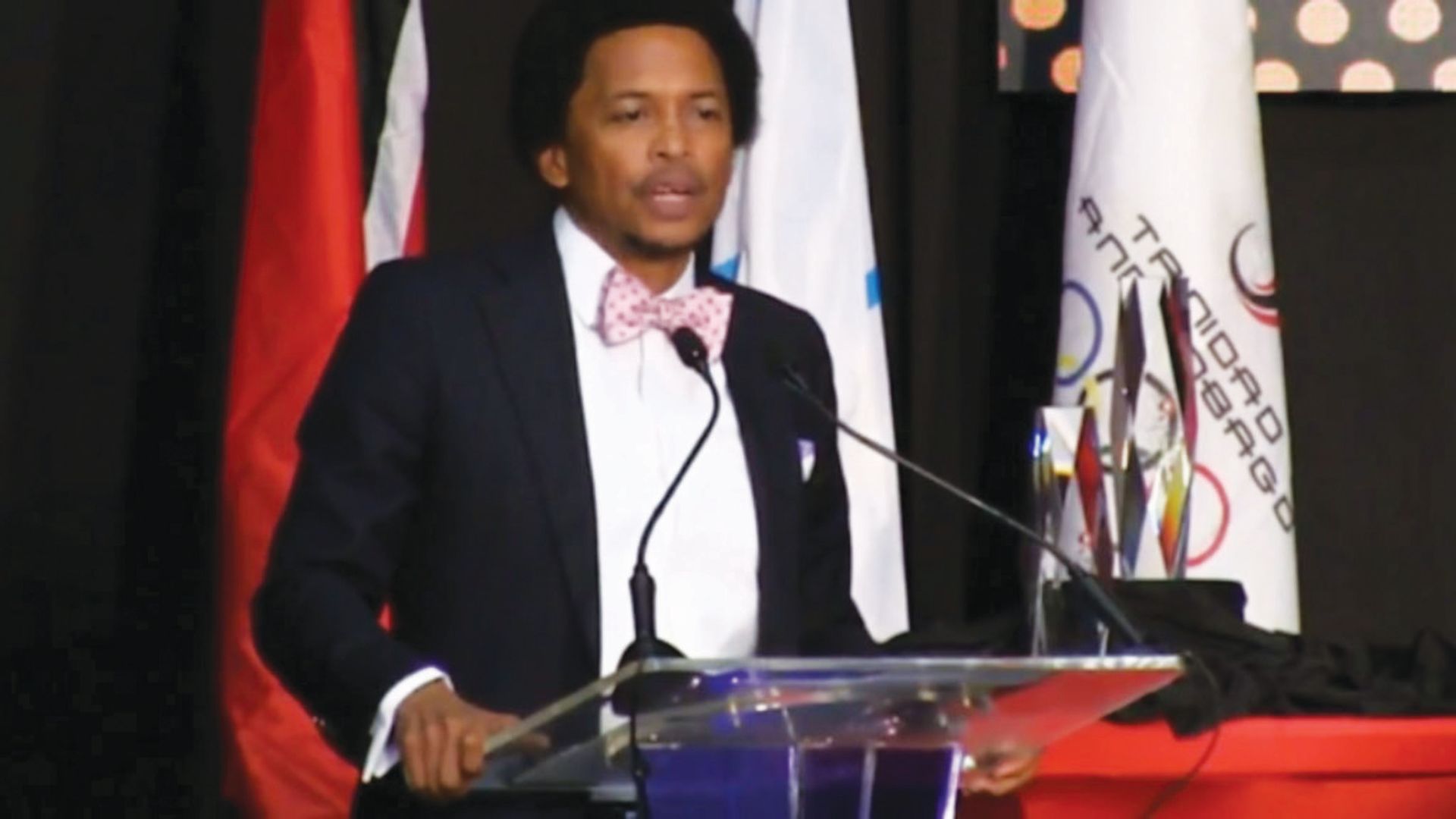Clarence Rambharat, Minister of Agriculture, Lands and Fisheries, identified ten issues post-COVID-19 that sports stakeholders must confront to emerge stronger and better suited to the changing economic landscape.
Senator Rambharat was speaking at the T&T Olympic Committee (TTOC) sixth annual Sport Industry TT held over Zoom on Thursday.
A former advisor to sporting teams and organisations prior to his political career, Senator Rambharat said these issues were significant in an era of COVID-19 that has made the sporting and economic atmosphere world-wide: “unclear, uncertain and risky”.
At the conference moderated by social entrepreneur Kiran Mathur Mohammed and themed: ‘The Future is Now; COVID-19 implications for the Sport Industry,' Rambharat zeroed in on the human being and the priority on personal health and wellness as one of the areas that will affect the resurgence of sporting assets and resources around the globe
He added this period will also be characterised by changing approaches in risk management, insurance coverage and the imposition of access through vaccination.
“In so far as it becomes mandatory for travel, for the need for proof of vaccination. What is the life of the vaccination, whether there will be an annual reboot of the vaccination process,” Rambharat said, “Also if vaccination will now be seen as a prerequisite to participation in the post-COVID-19 era and a prerequisite to entry to stadia and athletic venues?”
Rambharat added the absence of spectators must be weighed against the emergence of broadcast rights and the shift in dominance from traditional tv to digital platforms for mobile, tablets, and other handheld devices.
With the contraction and reprioritisation of available household spend, stakeholders must examine the impact and value of brands and sponsorship while the sustainability of mega sporting events like the Olympics will be seriously challenged, opening the pathway to potential investment from other underworld sources.
“Are we going to be more susceptible to dirty money? Are we going to see that sports become a conduit for money laundering and most importantly are we going to be more and more dependent on gambling?” he asked rhetorically, adding there could be a social and moral dilemma because of these activities.
Rambharat also spoke about legal considerations sporting contractual arrangements in the COVID-19 era might encounter.
TTOC president Brian Lewis said the Conference offered the possibility to re-imagine the sporting landscape going forward.
“All of us participating in this Sport Industry today have a responsibility, duty and obligation to each other, to this generation and future generations to embrace challenges, face up to them and to create and craft a future post-Covid-19 that allows our youth, young people and athletes to feel a sense of confidence in the leadership, direction and the vision,” he said.
Minister of Sport and Community Affairs, Shamfa Cudjoe said the COVID-19 presented an opportunity for local, regional and world entities to re-engineer their way of doing business.
“It is all about ushering a brighter future for sport at this trying time and this is the future that we have all been talking about for many years,” Cudjoe said,” ...this is the future. The future is now and even in the absence of people in the stands and we look at low ticket sales, sporting activities postponed and cancelled, the show must go on. All's not lost and this pandemic has opened a gateway of opportunity.”
Yao Williams, head of international business for Athletes First Partners (A1P) emphasized the importance of aligning organisations with a brand and the value of connecting to stakeholders through stories and narrative.
Krisztina Csavajda, sports operations manager, International Teqball Federation, and two-time Olympic gold medallist Heather Moyse founder of The Possibility Playground highlighted the significance of communities and path to the goals
Rivelino Simmons, managing director, Riveting Media Inc and Ariel Valdes, business development director, Bornan Sports Technology, touched on the opportunity to leap into using technology to develop content to connect with stakeholders.
Georgina Terry, managing director, BPD Associates Limited addressed the guiding principles of entrepreneurship and leadership while Zwede Hewitt, former national 400m champion and 2014 Commonwealth Games medallist and now co-founder/ CEO at LUHU (Let Us Help U) explained how he utilised his desire to help people guide him to become an entrepreneur/ businessman.
Edith Cox, treasurer at the Caribbean Association of National Olympic Committees (CANOC) and the Turks and Caicos Commonwealth Games Association discussed planning for the future while Timothy Odle, deputy programme manager services sector development, CARICOM, talked about how the CARICOM is attempting to create a functioning database of the sporting sub-sector of the Caribbean economy.

